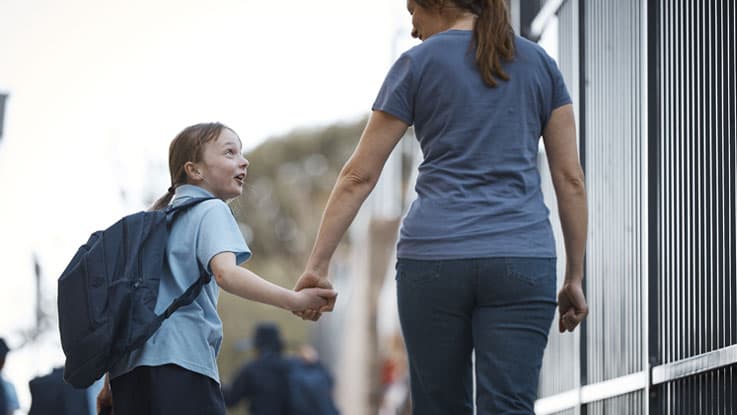
the smith family pulse survey
‘Digital divide’ and other learning related challenges remain major issues according to new survey.
This survey is the first survey of this type to be carried out by The Smith Family and it will be repeated regularly throughout each year to allow us to track families’ changing circumstances and to build up a picture over time of what they’re facing.

The survey looked at the cumulative impact of the pandemic related 2020-21 lockdowns, on children and their education and found:
- Around three quarters (77%) of Smith Family support workers said that based on feedback from parents or schools, the students they support have missed learning as a direct result of COVID and/or lockdowns
- 75% of family support workers also said they had seen an impact on students’ motivation to learn as a direct result of COVID and/or lockdowns
- Based on what families and schools are telling them, 3 in 4 (75%) survey respondents also said that some students are at risk of disengaging with their learning as a result of disruption caused by COVID, with 45% of family support workers surveyed saying some students are at risk of not returning to school when they fully reopen, or in 2022.
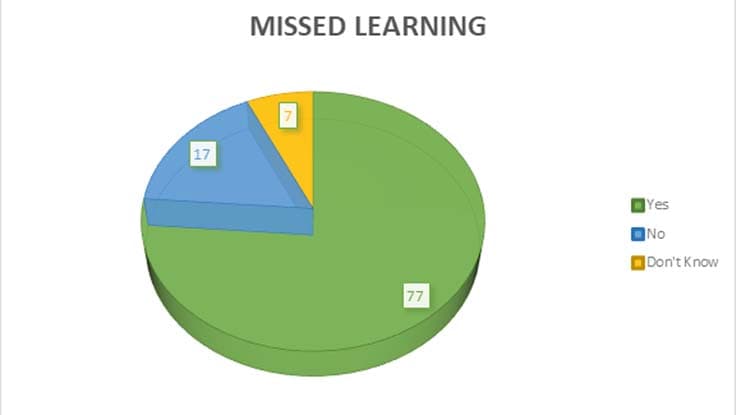
On “missed learning” due to the pandemic
Over three quarters (77%) of Smith Family support workers said that based on feedback from parents or schools, the students they support have missed learning as a direct result of COVID and/or lockdowns.
I have seen significant drops in the students’ grades - some parents have told me their child would need to repeat the year to catch up. This is due to many students not being able to focus on online learning, or not having the appropriate technology or environment to learn in. Some students do not have a device - or the device has broken, and the family are unable to afford the cost of repair.
On some students disengaging with school, and potentially not returning.
“Have you seen an impact on students’ motivation to learn, as a direct result of COVID/lockdowns?”
75% of Smith Family support workers said they had seen an impact on students’ motivation to learn as a direct result of COVID and/or lockdowns.
Based on what families and schools are telling them, 3 in 4 (75%) survey respondents also said that some students are at risk of disengaging with their learning as a result of disruption caused by COVID, with 45% of family support workers respondents saying some students are at risk of not returning to school when they fully reopen, or in 2022.
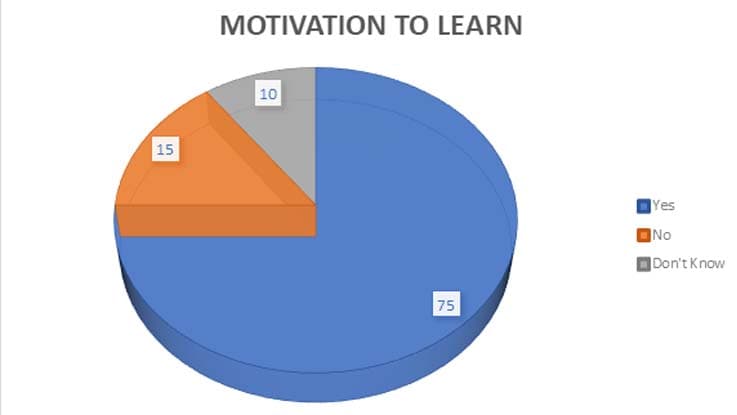
Many students are very fatigued and uncertain about the future. It’s hard to keep up hope and have drive and motivation when the surrounding circumstances around them are so uncertain.
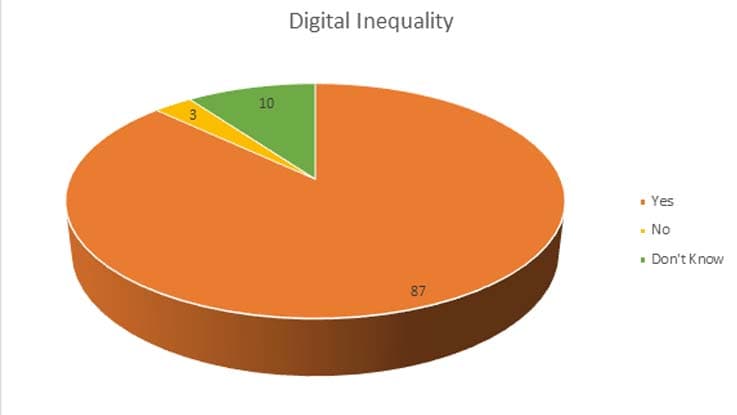
On digital inequality
“Are these digital issues impacting the children and families you support? lack of access to a suitable device like a laptop or tablet, and/or limited access to reliable internet, and/or lack of digital skills.”
87% of Smith Family support workers surveyed said that digital issues are continuing to impact on students and families, from a lack of access to devices and reliable internet, to a lack of digital skills or capability.
When Queensland was in lockdown, I had a number of families not able to participate at all, or multiple students trying to complete online learning on a mobile phone.
What do students most need for a smooth transition back to school?
Smith Family frontline workers were asked what they think students will most need to facilitate a smooth transition back to schools and about the impact of COVID-19 on the wider family unit.
The answers identified a number of important issues including:
- The need for additional support including ‘catch up’ tutoring
“The number one thing (needed) is individual tutoring outside of school - one on one - to get (students) caught up on what they feel they have missed and what they need.” (Family support worker, ACT)
- Recognising the impact on students/ parents/ carers’ mental health
“Patience is key. We can’t expect students (or parents) to ‘snap back’. I don’t think we should jump straight to academics and put pressure on students to catch-up right away. We need to allow them to re-integrate in to school socially and emotionally first. No one is going to feel secure for a while. We’ve all experienced trauma and we can’t ignore that.” (Family support worker, VIC)
- Additional stress and pressure on parents and caregivers
“A lot of work recently for me has been about keeping parents motivated too. Parents are struggling with unmotivated and disengaged children and they too, have had enough. I bumped into a mum at the local shop and she was in tears.” (Family support worker, NSW)
But there are some silver linings for our students
“Have you seen “silver linings” in how students and families are coping with these times? Please describe.”
We thought it was important to give Smith Family support workers the opportunity to also share positive feedback in this survey. Although the majority of respondents answered ‘no’ or ‘don’t know’ to this question, we have captured some of the positive responses below:
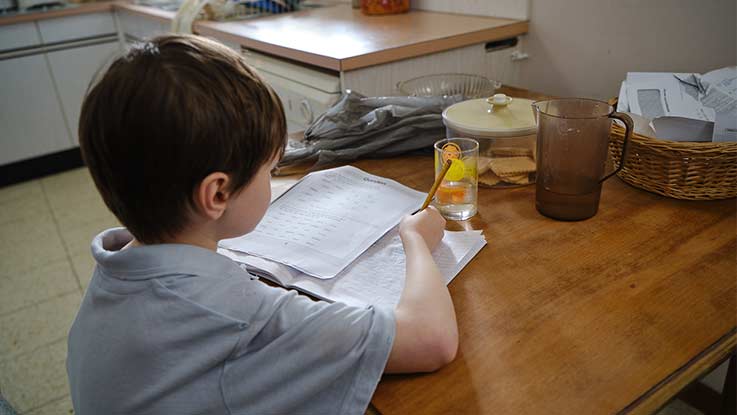
- “I’ve seen some students thrive in remote learning and family relationships become stronger. One of my families now has each child assigned to a roster and they have learnt to work as a team realising how much their mum does on her own.” (Family support worker, ACT)
- “A (silver lining) for me on the ground has been (some) parents really engaging in their children’s education.” (Family support worker, WA)
- “Many parents are talking about the increased family time they get together, and for some families not being at school has taken the (children) away from bullying.” (Family support worker, TAS)


